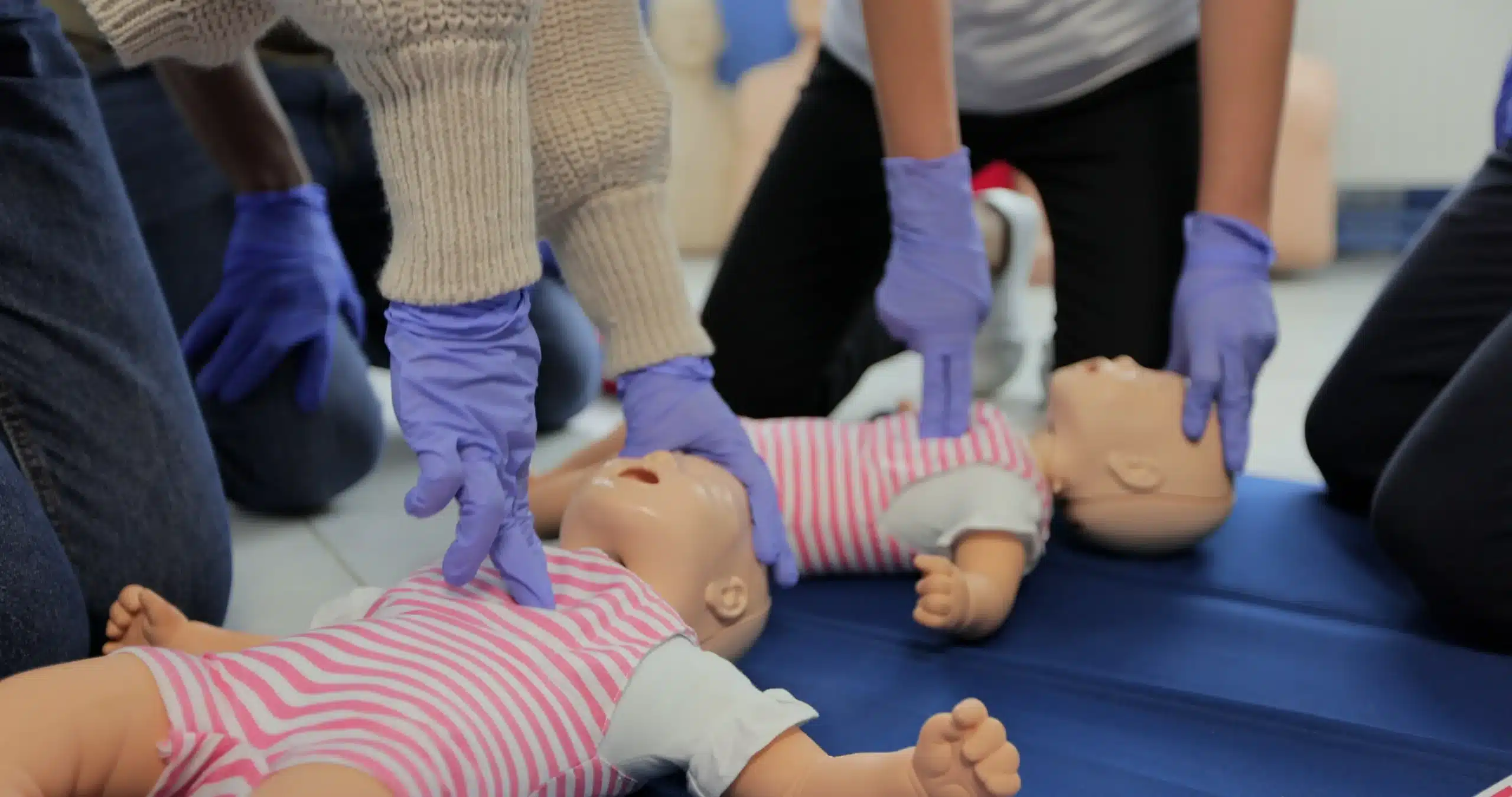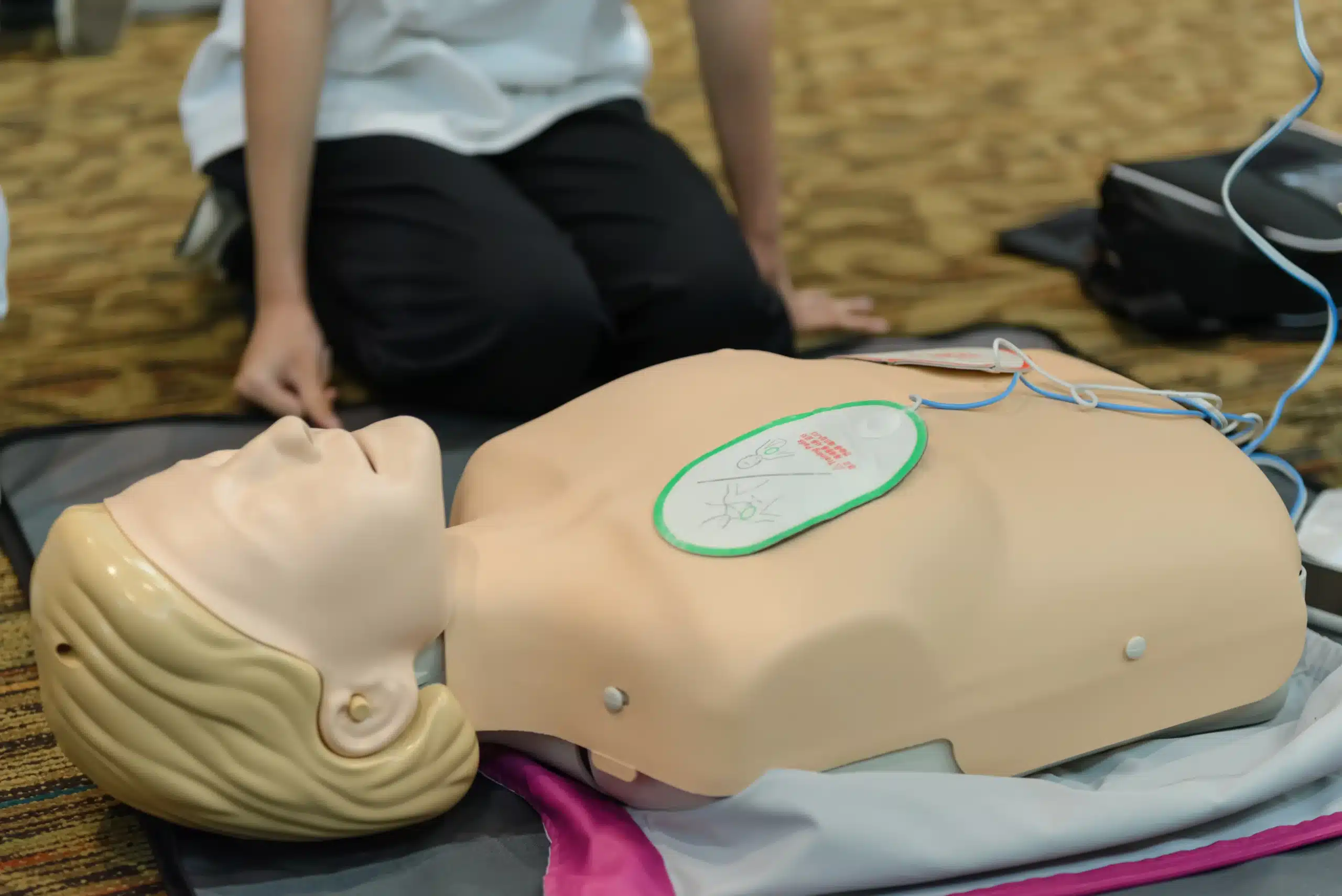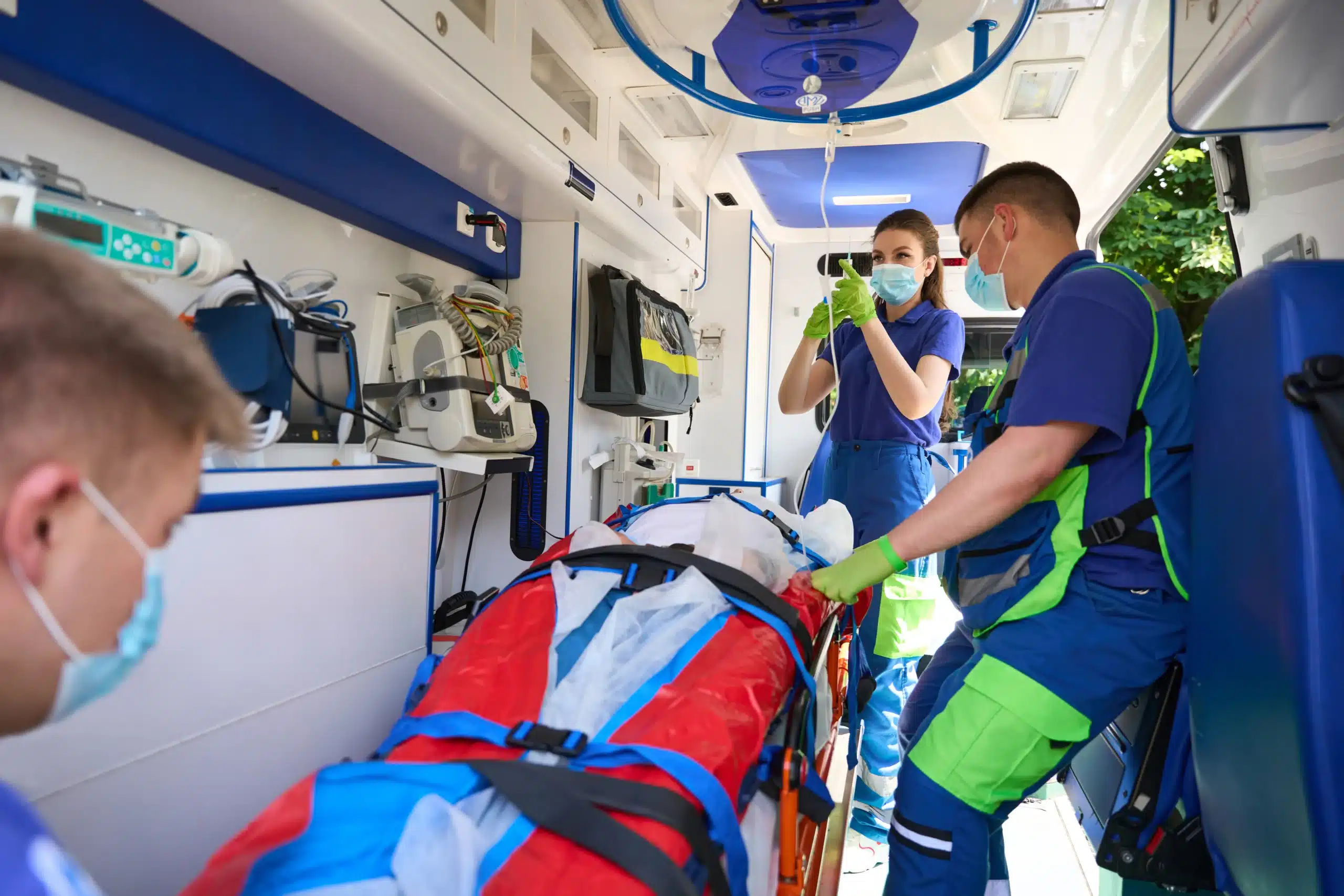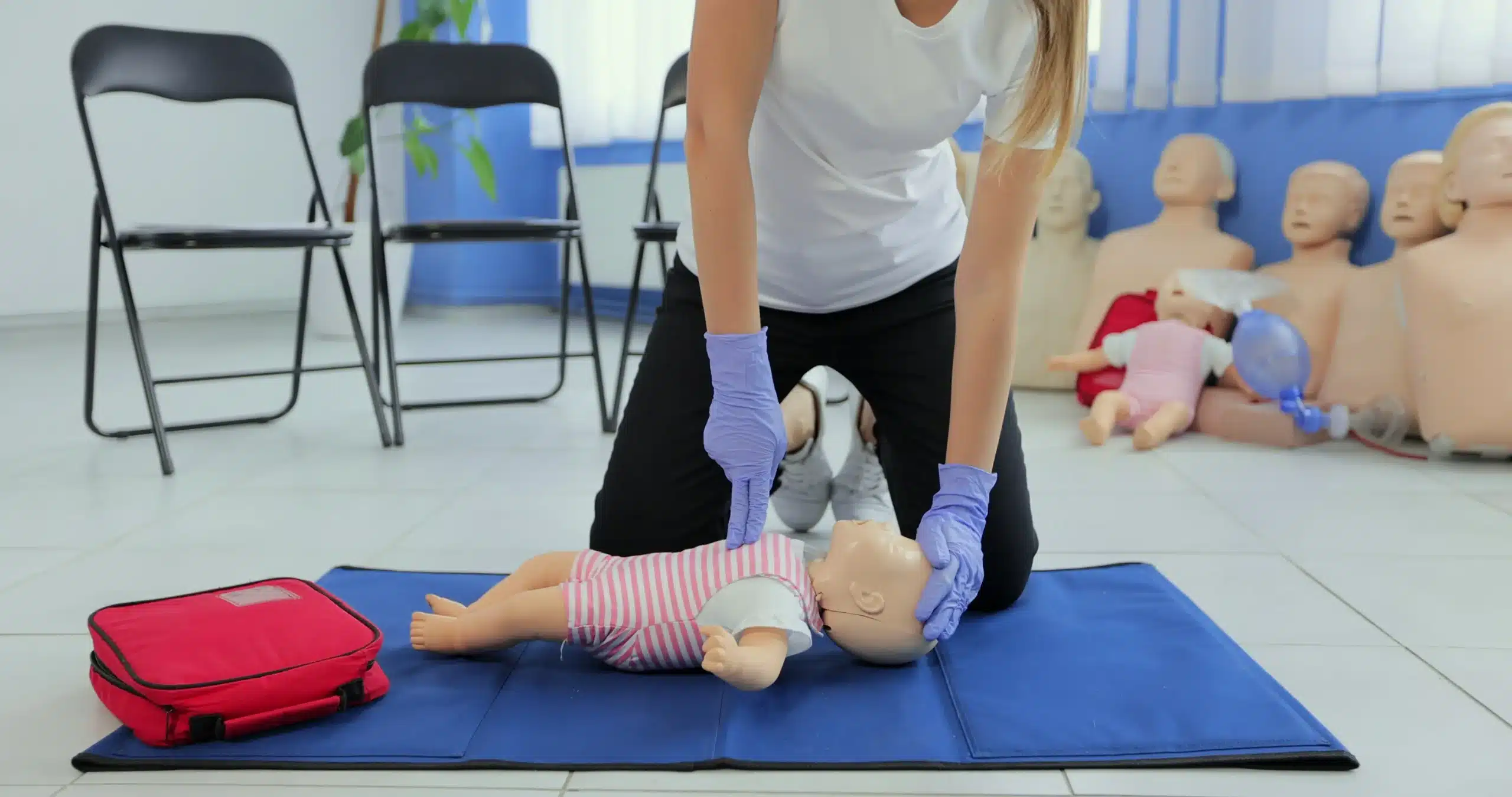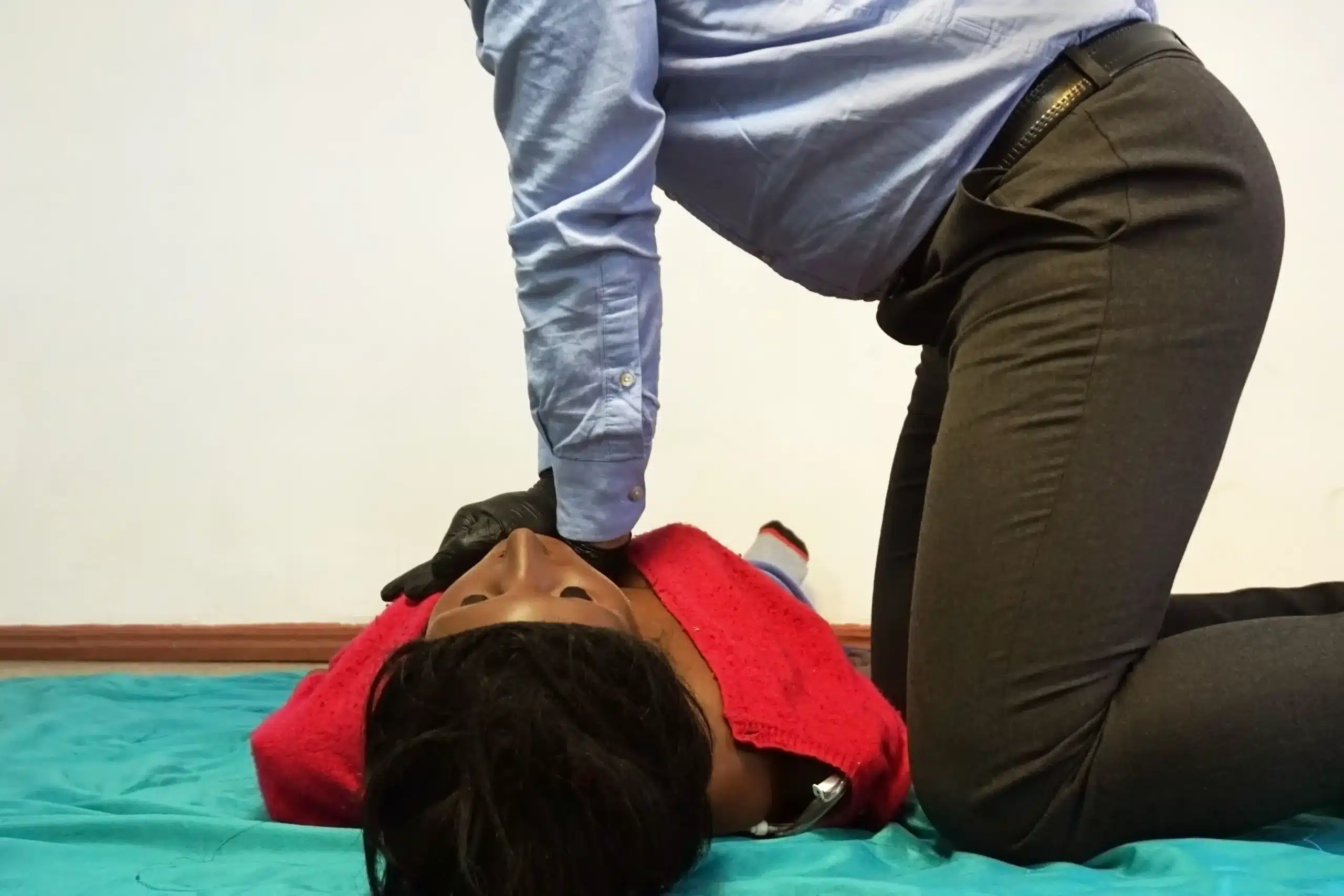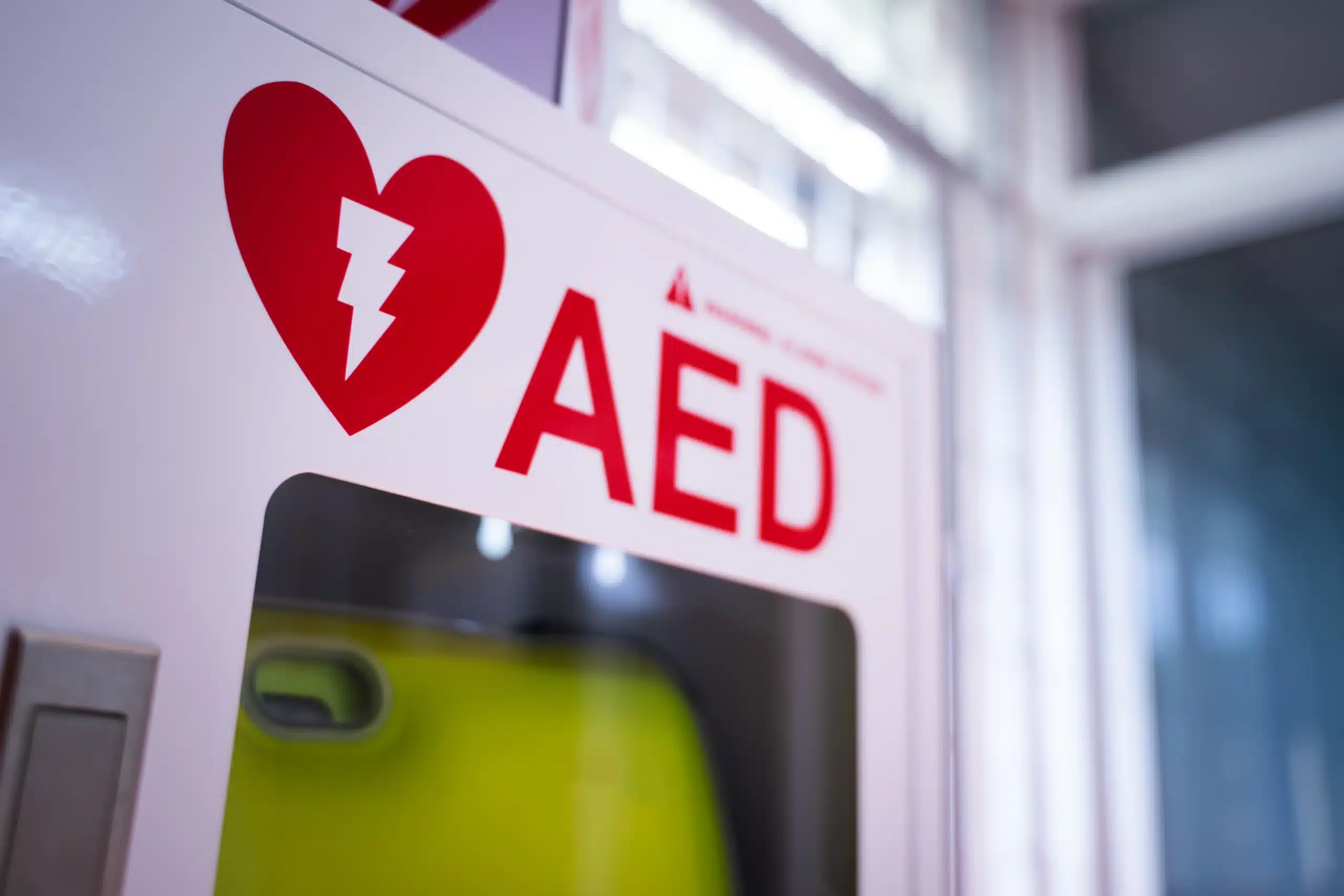In the face of a medical emergency, seconds can matter. BLS certification equips you with the skills to respond quickly and effectively, but staying current is crucial. This guide demystifies the BLS renewal process, offering practical advice and actionable steps. We’ll explore how to find “bls renewal near me,” break down the core components of BLS, and discuss different learning formats to fit your schedule and learning style. We’ll also cover cost-saving tips and provide guidance on maintaining your skills between renewals, ensuring you’re always prepared to provide critical care when it matters most.
Key Takeaways
- BLS is crucial for anyone who might need to respond to a medical emergency: Regular renewal ensures you’re confident and prepared to provide effective care when it matters most.
- Finding a BLS renewal course is easy with various resources available: Explore online search tools, check with local healthcare institutions, or contact professional organizations to find a course that fits your needs and schedule.
- Preparation is key for a smooth BLS renewal process: Review the latest guidelines, refresh your skills, and understand the different course formats (online, in-person, blended) to make the most of your recertification experience.
What is BLS and Why Renew?
Knowing how to respond to a medical emergency can make all the difference. Basic Life Support (BLS) equips you with the skills to potentially save a life. But what exactly does BLS entail, and why is renewing your certification so important? Let’s break it down.
Key BLS Components
BLS focuses on the fundamentals of life-saving techniques. These skills are critical for healthcare professionals like paramedics, EMTs, and nurses, but also beneficial for anyone who might need to respond to an emergency, such as teachers, coaches, or even parents. Core components of BLS include high-quality CPR, using an AED (automated external defibrillator), and providing basic airway management. Mastering these skills can give you the confidence to act quickly and effectively in a crisis. For those seeking American Heart Association certified training, resources like the Northern California CPR Directory can be invaluable.
Why Regular Renewal Matters
Staying up-to-date with the latest BLS guidelines is crucial for providing the best possible care. Regular renewal ensures your skills are sharp and that you’re familiar with any changes in emergency procedures. Think of it like keeping your driver’s license current—it’s not just about a piece of paper; it’s about maintaining competence and readiness. Recertification reinforces best practices for chest compressions, rescue breaths, and recognizing when someone needs immediate BLS. It’s an investment in your ability to respond effectively and potentially save a life. Explore convenient and affordable RQI classes for a streamlined recertification process. For those concerned about cost, consider our low-price guarantee and contact us to learn more about our BLS renewal courses.
Find BLS Renewal Courses Near You
Finding the right BLS renewal course shouldn’t feel like a scavenger hunt. Whether you’re a healthcare provider, a teacher, or anyone needing recertification, several reliable avenues can simplify your search. Here’s how to find a BLS renewal course that fits your needs:
Online Search Tools
The internet offers convenient tools to locate BLS renewal courses. The American Red Cross website, for example, features a search tool to find classes online or in your area. Simply enter your zip code to see available dates, times, and course formats. This streamlined approach helps you quickly compare options and choose a course that aligns with your schedule and location. Many other organizations, including CPR CPR, offer online search tools to locate BLS providers throughout Northern California.
Local Healthcare Institutions
Hospitals, clinics, and other healthcare institutions frequently offer BLS renewal courses. Check with facilities in your area, like your local hospital or community health center, to see if they provide these courses. These institutions often tailor their training to meet the specific needs of healthcare professionals, offering a relevant and focused learning experience. For example, the American Red Cross provides various BLS courses, including renewal and instructor training, at its local chapters. This shows how local branches can be valuable resources.
Professional Associations
Professional organizations related to healthcare and emergency response are excellent resources for finding accredited BLS renewal courses. These associations often maintain directories of certified instructors or training centers. Contacting organizations like the American Heart Association or your professional licensing board can connect you with approved providers. Safety Training Seminars, for instance, offers a range of American Heart Association courses, including BLS certification and renewal, highlighting how these organizations can be a one-stop shop for your training needs. CPR CPR also offers a convenient low price guarantee and a streamlined renewal process through their RQI classes. For questions or a more personalized approach, you can always contact CPR CPR directly.
Top BLS Renewal Providers
Finding the right BLS renewal provider often comes down to personal preference, accessibility, and specific course requirements. Here are a few leading options to explore:
American Heart Association (AHA)
The American Heart Association offers various ways to renew your BLS certification, including online courses and traditional in-person classes. This flexibility allows you to choose the learning environment that best suits your schedule and learning style. The AHA is widely recognized for its high-quality training materials and evidence-based guidelines. For those seeking recertification in Northern California, CPR CPR provides convenient and affordable AHA-compliant BLS renewal courses.
American Red Cross
The American Red Cross also provides both online and in-person BLS renewal courses, making it easy to maintain your credentials. Their streamlined approach focuses on practical skills and real-world scenarios, ensuring you’re prepared for emergencies.
Safety Training Seminars
Safety Training Seminars offers a range of American Heart Association (AHA) courses, including BLS renewal. With options for in-person, online, and blended learning formats, you can find a course that fits your needs and preferences. They emphasize affordability and convenience, making it easier to stay current with your certification. CPR CPR’s RQI program, offered through Safety Training Seminars, provides a fast and efficient path to BLS recertification.
National Safety Council
The National Safety Council is another reputable provider of BLS renewal training. While they offer a variety of safety courses, their BLS renewal programs are often tailored to healthcare professionals and first responders. Check their website for specific course offerings and schedules.
Local Hospitals and Medical Centers
Many local hospitals and medical centers offer BLS renewal courses for their staff and the surrounding community. These courses often provide convenient scheduling and access to experienced instructors. Contact your local hospitals or check their websites for available training opportunities. For a comprehensive list of CPR training resources in Northern California, visit CPR CPR’s directory.
Choose the Right BLS Renewal Format
Finding the right BLS renewal course means understanding the different formats and how they fit your learning style and schedule. Let’s break down online, in-person, and blended learning options.
Online Courses: Pros and Cons
Online BLS renewal courses offer great flexibility. You can study at your own pace and fit the training around your schedule. This format is perfect for self-directed learners with limited time for in-person classes. Many online courses offer same-day BLS recertification, making them a quick and efficient option. However, online courses may not provide the same level of hands-on practice as in-person training. While some programs use interactive simulations, they may not fully replicate working with real equipment and an instructor. If you learn best by doing, an online-only course might not be the best fit.
In-Person Training: Advantages and Considerations
Instructor-led training provides a more traditional learning environment. Hands-on practice and immediate feedback from an instructor can be invaluable, especially for tactile learners. In-person classes also allow you to ask questions and interact with other healthcare professionals. However, in-person training requires more of a time commitment. You’ll need to travel to a specific location and attend a scheduled class. The cost of BLS renewal in San Francisco can also vary, so research and compare prices. Before your renewal course, review the current American Heart Association BLS guidelines to stay up-to-date on any changes.
Blended Learning Options
Blended learning combines online and in-person training. Programs like HeartCode BLS mix online coursework with a hands-on skills session. This lets you learn the concepts online at your own pace, then practice your skills with an instructor. Blended learning offers more flexibility than traditional in-person classes while still providing hands-on training. This format is excellent for those who want a comprehensive learning experience but need more flexibility. It combines online learning convenience with the practical application of in-person skills practice. BLS courses in San Francisco offer several blended learning options, so you can find the right program.
What to Expect During BLS Renewal
Renewing your BLS certification is a straightforward process. Here’s what you can expect:
Course Duration and Content
BLS renewal courses refresh your essential lifesaving skills. Plan for a course lasting several hours, usually completed in a single day. The content covers core BLS principles, including high-quality CPR for adults, children, and infants, techniques for relieving choking, and using an AED. You’ll also review the latest science and guidelines from the American Heart Association. In San Francisco, these BLS renewal courses typically cost between $50 and $150.
Skills Assessment and Hands-on Practice
Hands-on practice is crucial for BLS renewal. You’ll demonstrate your skills in a simulated environment. Instructors use realistic scenarios and mannequins to assess your proficiency in CPR, AED use, and other essential techniques. Some courses, like HeartCode BLS, offer a blended learning approach, combining online coursework with in-person skills sessions. This lets you learn the material at your own pace before practicing with an instructor.
Certification Process and Validity
After completing the course and passing the skills assessment, you’ll receive your updated BLS certification card, valid for two years. Since there’s no grace period after expiration, mark your calendar and plan your BLS recertification in advance. This ensures you’re always prepared for emergencies and maintain your professional requirements. Staying current with your BLS skills is vital for providing effective care and potentially saving lives.
BLS Renewal Costs & Savings
Renewing your BLS certification is an investment in your skills and career. Understanding the costs and exploring potential savings can make the process smoother. Let’s break down BLS renewal pricing and ways to reduce your expenses.
Average BLS Renewal Pricing
BLS renewal course fees vary depending on your location and the training provider. In San Francisco, courses typically range from $50 to $150. This range offers flexibility, allowing you to find a course that aligns with your budget. For a comprehensive guide to BLS renewal in San Francisco, check out this helpful resource. Remember, the cost often reflects the quality of instruction, materials, and the overall learning experience. It’s wise to consider what’s included in the course fee before making a decision.
Group Rates and Promotions
If you’re renewing with colleagues or friends, explore group discounts. Many training centers offer reduced rates for group registrations. This can be a smart way to save money while learning together. Also, check for promotional offers and discounts. Websites like American BLS often list promo codes for CPR and BLS courses, which could lead to significant savings. For more information on BLS classes in San Francisco, including pricing details, take a look at this complete guide.
Employer Reimbursement
Many employers understand the value of BLS certification and may offer reimbursement for employees who renew their credentials. Check with your HR department to see if your company offers this benefit. Investing in your BLS renewal not only enhances your professional skills but can also be a financially sound decision, especially if your employer covers the cost. This informative article further explores the long-term benefits of BLS renewal.
Prepare for BLS Renewal Success
Getting ready for your BLS renewal doesn’t have to be stressful. With a little planning, you can walk into your course feeling confident and prepared. Here’s how to set yourself up for success:
Required Materials and Equipment
BLS renewal courses often provide the necessary equipment, like mannequins and AED trainers. However, it’s always a good idea to check with your chosen provider about specific requirements. Some courses may suggest bringing your current BLS provider card, a pen, and a notebook to jot down notes. BLS training is available in several formats, including in-person classes, online courses, and blended learning, so your materials may vary depending on your chosen format. This flexibility allows you to choose the learning style that suits you best.
Pre-course Study Recommendations
While you don’t need to be a BLS expert before your renewal course, refreshing your knowledge beforehand can be incredibly helpful. Review the current American Heart Association BLS guidelines to familiarize yourself with any updates or changes. This will allow you to focus on the practical skills during the course. Consider reviewing basic life support skills like chest compressions, rescue breaths, and how to use an AED. Even a quick overview can make a big difference.
Maintain Skills Between Renewals
The best way to prepare for your BLS renewal is to use your skills regularly. If you work in healthcare, this likely happens naturally. However, even if you don’t frequently use BLS in your professional life, there are ways to stay sharp. Consider volunteering at organizations that might require BLS certification or participating in refresher courses. Regular practice not only helps you prepare for renewal but also ensures you’re always ready to respond effectively in a real emergency. Staying current with guidelines and maintaining your skills through regular practice are essential for successful BLS renewal and providing effective care when it matters most.
Related Articles
- BLS Renewal in Concord: Your Complete Guide – San Francisco Bay Area CPR Classes
- BLS Classes in San Francisco: Your Complete Guide – San Francisco Bay Area CPR Classes
- BLS Courses in Oakland: A Certification Guide
- BLS Classes in Sacramento: A Complete Guide
- Basic Life Support (BLS) in Berkeley CA: Top Courses
Frequently Asked Questions
How often do I need to renew my BLS certification? BLS certification is typically valid for two years. It’s essential to renew before your current certification expires to maintain your skills and meet any professional requirements. Keep track of your expiration date and plan your renewal course in advance.
What if my BLS certification has already expired? If your BLS certification has expired, you’ll need to retake a full BLS course rather than a renewal course. Check with your certifying organization or employer for specific requirements. Don’t delay, as having a current certification is crucial for many professional roles and for responding effectively in emergencies.
What’s the difference between online, in-person, and blended BLS renewal courses? Online courses offer flexibility, allowing you to learn at your own pace, while in-person courses provide hands-on practice and direct instructor feedback. Blended learning combines the benefits of both, offering online coursework supplemented by in-person skills sessions. Consider your learning style and schedule when choosing the best format for you.
How can I find BLS renewal courses near me? Several resources can help you locate BLS renewal courses. Online search tools, local healthcare institutions, and professional organizations often list available courses. Check with hospitals, clinics, or your local Red Cross chapter for options in your area.
How much does BLS renewal typically cost? The cost of BLS renewal varies depending on the training provider and your location. Expect to pay between $50 and $150 for a renewal course. Look for group discounts or employer reimbursement programs to potentially reduce the cost. Remember, investing in your BLS renewal is an investment in your skills and ability to provide critical care when needed.


